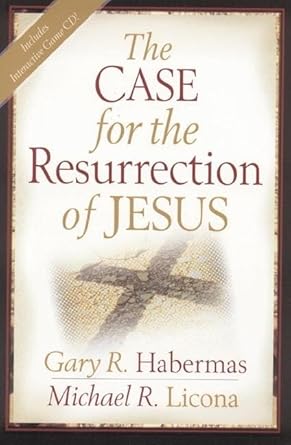
The Imitation of Christ Book Review: Why This 500-Year-Old Devotional Still Transforms Lives
Thursday, September 18, 2003I'll be honest with you—when I first picked up The Imitation of Christ, I wasn't prepared for how deeply it would challenge me. This 15th-century devotional by Thomas à Kempis has been changing lives for over 500 years, and there's a reason it's considered the most influential Christian book after the Bible itself. But here's the thing: it's not an easy read. It's the kind of book that feels less like a gentle devotional and more like a loving mentor who cares enough to tell you the hard truths you need to hear. If you've been wondering whether this ancient spiritual classic still has something to say to us today, stick with me. I think you'll be surprised at how relevant à Kempis's words remain, even in our distracted, Instagram-filtered world.
About the Book: A Medieval Guide to Radical Discipleship
The Author's Spiritual Legacy
Thomas à Kempis lived from 1380 to 1471 in the Netherlands, spending most of his life quietly tucked away in the monastery of Mount St. Agnes. He wasn't a famous preacher or a theological revolutionary. He was simply a monk who loved God and spent decades in prayer, Scripture meditation, and humble service.
À Kempis was part of a movement called Devotio Moderna—"Modern Devotion"—which sounds ironic now, but back then it was somewhat radical. This movement emphasized personal relationship with God over external religious performance. Sound familiar? Sometimes the "new" thing we're discovering is actually something the faithful have known for centuries. What à Kempis gives us isn't theory from an ivory tower; it's wisdom forged in the furnace of daily, unglamorous faithfulness.
Structure and Central Themes
Think of The Imitation of Christ as a four-course meal for the soul. The first book serves up spiritual counsel for your interior life—basically, "Stop chasing vanity and learn humility." The second book goes deeper, teaching you to let go of worldly comfort and cling to God instead.
The third book is where things get really intimate. It's the longest section, and it reads like an ongoing conversation between Christ and your soul. Imagine sitting across from Jesus, listening to Him speak about consolation, suffering, and what it means to truly surrender. The fourth book focuses on the Eucharist as our spiritual bread.
Throughout all four books, à Kempis keeps circling back to themes that hit home: knowing yourself honestly, battling pride, embracing obedience, and—here's the kicker—actually imitating Christ's life, not just admiring it from a safe distance. You know, like the difference between liking someone's workout posts on social media and actually going to the gym yourself.
The Good: What Makes This a Devotional Masterpiece
Let me tell you what makes this book so powerful. À Kempis doesn't sugarcoat anything. If you're looking for "your best life now" pep talks, this isn't your book. But if you want someone to lovingly expose the religious games you play with yourself—the spiritual pride hiding behind your Bible knowledge, the way you seek God's blessings more than God Himself—then buckle up.
Here's what I love: every short chapter is like looking in a mirror you didn't know you needed. À Kempis has this uncanny ability to describe exactly what's happening in your heart, sometimes before you're even aware of it yourself. When he writes about silence and solitude, I can't help but think about how we fill every quiet moment with podcasts, scrolling, or noise. His words feel prophetic, and they were written 600 years ago!
What really sets this Christian devotional classic apart is its laser focus on the heart. À Kempis doesn't care much about whether you've had mountaintop spiritual experiences or how many Bible verses you've memorized. He cares about whether you're actually being transformed. As he might put it: Are you becoming more like Jesus in the hidden places where nobody's watching?
Some passages have stayed with me for years. His reflections on the "royal road of the holy cross" remind me that there are no shortcuts in discipleship. His words about finding sweetness in preferring God's will over my own have convicted me more times than I can count. This isn't self-help spirituality—it's the real, gritty work of dying to self.
And honestly? Despite being written in medieval language (depending on your translation), it's surprisingly accessible. À Kempis writes clearly and simply. No theological jargon for the sake of sounding smart. Just truth, straight up.
The Not-So-Good: Challenges for Contemporary Readers
Okay, full disclosure: this book can feel intense. À Kempis lived in a monastery, and sometimes it shows. His emphasis on self-denial, suffering, and "contempt for the world" can feel harsh, especially if you're coming from a more celebratory Christian tradition. I've had moments reading this where I thought, "Wait, is anything okay to enjoy?"
Here's the tension: à Kempis wrote from a time and place that saw earthly life primarily as preparation for heaven. While that's true in one sense, those of us with jobs, families, and lives outside monastery walls sometimes need to do some interpretive work. How do we apply monastic wisdom to changing diapers, sitting in traffic, or dealing with a difficult coworker? It's not always clear.
Some of his warnings against learning and intellectual pursuits can also feel extreme. Yes, knowledge can puff up—but it can also equip us for ministry and deepen our understanding of God. À Kempis is correcting a specific problem (spiritual pride among the learned), but modern readers need to take that counsel with discernment.
Also, I'll be straight with you: this book repeats itself. A lot. À Kempis will make the same point five different ways. Sometimes that's helpful for meditation; sometimes it feels like you're reading the same chapter you read yesterday. It's definitely not a page-turner you'll breeze through in a weekend.
Who Is This Book For?
So who should actually read The Imitation of Christ? Here's my take:
- Christians who are tired of shallow faith and ready for something meatier, even if it's uncomfortable
- Anyone drawn to contemplative prayer or interested in what monks and mystics have learned about God
- Believers struggling with pride, distraction, or spiritual dryness who need someone to speak truth, not just encouragement
- Both Catholics and Protestants looking for wisdom that transcends our denominational differences (this book has been treasured by both for centuries)
- Lifelong learners who want a book they can return to again and again, finding new insights each time
Here's the question that matters: Do you want a book that will comfort you, or one that will transform you? Sometimes they're the same thing, but with à Kempis, expect more of the latter.
Final Verdict: A Lifelong Companion Worth the Challenge
Look, I'm not going to pretend The Imitation of Christ is for everyone, or for every season. If you're in a place where you need tender encouragement and gentle affirmation, maybe bookmark this one for later. But if you're ready to be challenged, to have your spiritual blind spots exposed, and to go deeper than you've gone before—this book is a gift.
I think of it less as a book you read once and more as a spiritual mentor you keep coming back to over a lifetime. Each time you return, you're a little different, and you'll hear something new. That's the mark of truly great spiritual writing.
Thomas à Kempis offers us something rare: truth without compromise, delivered with genuine pastoral care. He's not trying to shame you—he's trying to free you. For those willing to read slowly, pray through the hard parts, and let the Holy Spirit use these words to do surgery on your heart, this book is as powerful today as it was 500 years ago.
Yes, the summary is simple: die to yourself and live in Christ. But friend, that's a lifetime's work, isn't it? And that's exactly why this beloved Catholic spiritual book (cherished equally by Protestants, by the way) belongs on your shelf and in your devotional rotation.
My rating: 5/5 stars if you're ready to be challenged and changed
3/5 stars if you're looking for lighter, more encouraging fare
More Books
Comments



